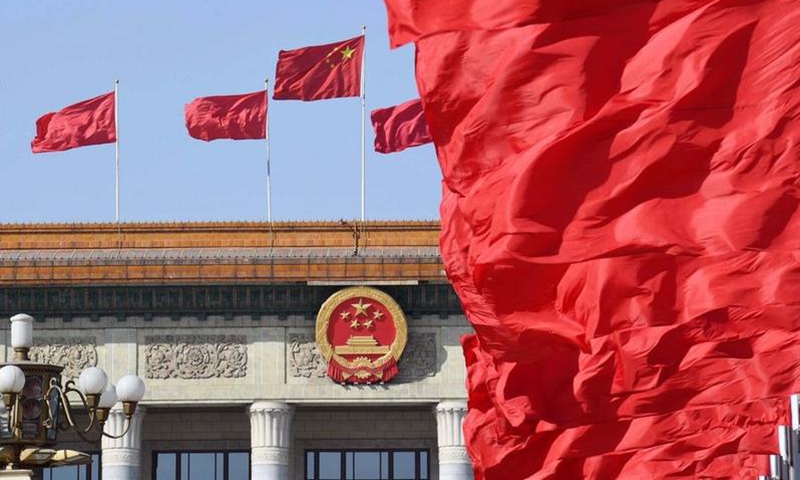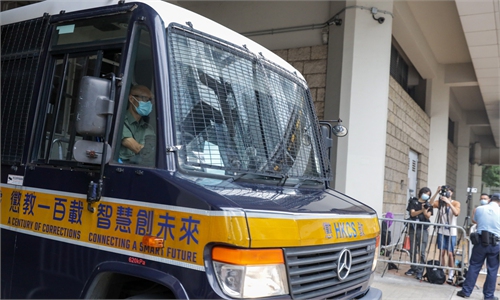Anti-foreign sanctions law likely to be included in HK Basic Law Annex III

Photo: Xinhua
The recently enacted Anti-Foreign Sanctions Law is likely to be included in the Hong Kong Basic Law Annex III at a meeting of the Standing Committee of the National People's Congress (NPC), China's top legislature, from August 17 to 20 in Beijing, sources confirmed with the Global Times on Wednesday.
According to official announcement, agendas involving the Hong Kong Special Administrative Region (HKSAR) and the Macao Special Administrative Region will be discussed during the meeting. The Chairmen's Council suggested the meeting should consider the draft decision on the addition of national laws listed in Annex III of the two SARs.
The agenda may include adding the Anti-Foreign Sanctions Law into the Annex III of the Basic Law of the two SARs, two people familiar with the matter told the Global Times on Wednesday.
The Anti-Foreign Sanctions Law was adopted by China's top legislature in June, providing a comprehensive legal basis for blocking illegal foreign sanctions and preventing Chinese individuals and entities from suffering the damage caused by such illegal sanctions.
https://www.globaltimes.cn/page/202106/1225911.shtml
The Annex III of the HKSAR's Basic Law states national laws that should be applied with effect from July 1, 1997 by way of promulgation or legislation by the SAR.
The NPC Standing Committee is likely to discuss the introduction of the Anti-Foreign Sanctions Law into the Annex III of the Basic Law, which has yet to be officially announced, Tam Yiu-chung, a member of the NPC Standing Committee from Hong Kong, told the Global Times on Tuesday.
Kennedy Wong Ying-ho, solicitor of the Supreme Court of Hong Kong, also said it's probably on the agenda of China's top legislature in the next month.
When China fought back the sanctions imposed by the US on liaison office officials over what the US described as a "deterioration'' of Hong Kong's business environment, experts suggested that introducing the Anti-Foreign Sanctions Law into Hong Kong is necessary to better respond to such instances.
It will help the HKSAR government work with the central government in effectively responding to foreign sanctions and interference, Tian Feilong, a member of the Beijing-based Chinese Association of Hong Kong and Macao Studies, told the Global Times in a recent interview.
"The HKSAR government lacked the resources to combat those sanctions in the past. With the implementation of the Anti-Foreign Sanctions Law, they have the top authority's legal support," Tian said.
Carrie Lam, chief executive of the HKSAR, hailed the Anti-Foreign Sanctions Law when it was passed in June.
Lam said the law will give the US and other countries "a taste of their own medicine," because a number of central government and HKSAR government officials have been sanctioned by the US for the national security law for Hong Kong implemented in 2020.


